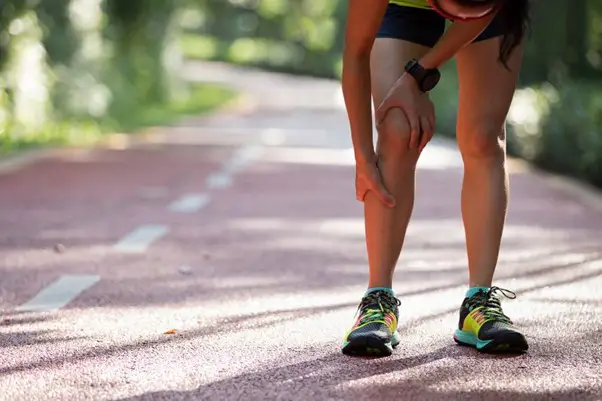In the ever-evolving world of athletic performance and recovery, athletes are constantly seeking new ways to enhance their physical and mental capabilities. One increasingly popular method is microdosing THC, the psychoactive compound found in cannabis, through the use of gummies.
Unlike traditional methods of cannabis consumption, microdosing involves taking very small amounts of THC, often in the form of gummies, to achieve subtle effects without the intense high typically associated with marijuana. But why are athletes turning to microdosing THC gummies, and what benefits do they believe it offers? This article delves into the reasons behind this growing trend.
Enhanced Focus and Mental Clarity
One of the primary reasons athletes turn to microdosing THC gummies is to enhance focus and mental clarity. In small doses, THC can have a stimulating effect on the brain, helping athletes to stay focused during training sessions or competitions. Unlike larger doses, which can impair cognitive function and lead to a sense of euphoria or lethargy, microdosing allows athletes to remain sharp and alert without the mental fog that can accompany higher levels of THC.
For many athletes, maintaining a strong mental game is just as important as physical conditioning. The ability to stay present, make quick decisions, and execute complex strategies is crucial in many sports. Microdosing THC may help athletes achieve a state of calm concentration, making it easier to perform under pressure.
Improved Recovery and Pain Management
Recovery is a critical aspect of any athlete’s routine, and managing pain and inflammation is a big part of that process. THC is known for its analgesic (pain-relieving) and anti-inflammatory properties, which can be beneficial for athletes dealing with the physical toll of intense training and competition. By microdosing THC, athletes can manage pain and inflammation without the need for stronger medications that might have unwanted side effects.
Microdosing also allows athletes to take advantage of THC’s benefits without the sedative effects that can occur with larger doses. This is particularly important for athletes who need to remain active and alert during the day while still managing discomfort from injuries or muscle soreness. The subtle effects of micro-dosing THC gummies can provide relief while allowing athletes to continue their training regimen.
Related: Can You Use Delta 8 Gummies To Enhance Your Workouts?
Reduced Anxiety and Stress
Athletes often face significant levels of stress and anxiety, whether from the pressure to perform, the demands of competition, or the challenges of balancing training with other aspects of life. THC, in small doses, has been reported to help reduce anxiety and promote relaxation. Microdosing THC gummies can offer athletes a way to manage stress and anxiety without the overwhelming effects of a full dose.
By reducing anxiety, athletes may find it easier to focus on their training, improve their performance, and recover more effectively. Managing stress is also important for overall health, as chronic stress can lead to a host of physical and mental health issues that could hinder athletic performance. For some athletes, microdosing THC provides a natural, alternative method for maintaining mental well-being.
Better Sleep Quality
Quality sleep is essential for athletes, as it is during sleep that the body repairs muscles, consolidates memory, and rejuvenates energy levels. Poor sleep can lead to decreased performance, slower recovery times, and a higher risk of injury. THC has been shown to help with sleep by promoting relaxation and reducing the time it takes to fall asleep.
Microdosing THC gummies before bed may help athletes achieve better sleep without the grogginess that can come from larger doses or other sleep aids. Because the doses are small, athletes can experience the benefits of THC’s sleep-enhancing properties without disrupting their overall sleep architecture or feeling overly sedated the next morning.
Non-Intoxicating Experience
One of the key reasons athletes prefer micro dosing THC is that it provides the benefits of THC without the intense high. Athletes need to maintain control and clarity throughout their training and competition, and large doses of THC can impair their ability to do so. Microdosing, on the other hand, allows athletes to experience the positive effects of THC—such as pain relief, reduced anxiety, and improved focus—while still being able to perform at their best.
For many athletes, this balance is crucial. They can incorporate THC into their regimen as a tool for enhancement and recovery without the risk of impaired judgment, coordination, or motivation that can come with larger doses.
Legal and Ethical Considerations
As cannabis becomes legal in more regions, athletes are exploring how to incorporate it into their training and recovery regimens. However, the use of cannabis in sports is still a complex issue, with varying rules and regulations depending on the sport and location. Microdosing THC gummies offers a way for athletes to benefit from cannabis while staying within legal and ethical boundaries.
In some sports, there are thresholds for THC levels that athletes must not exceed to avoid penalties or disqualification. Microdosing allows athletes to use THC in a way that is less likely to result in elevated levels of the compound in their system, reducing the risk of testing positive for THC during competitions.
Conclusion
Microdosing THC gummies is becoming an increasingly popular option for athletes looking to enhance their focus, manage pain, reduce anxiety, and improve sleep quality without the intoxicating effects of higher doses. By taking advantage of the subtle benefits of THC, athletes can incorporate cannabis into their routines in a controlled and effective manner. While more research is needed to fully understand the impact of microdosing THC on athletic performance, many athletes are finding that it offers a valuable tool for achieving their goals both on and off the field.







